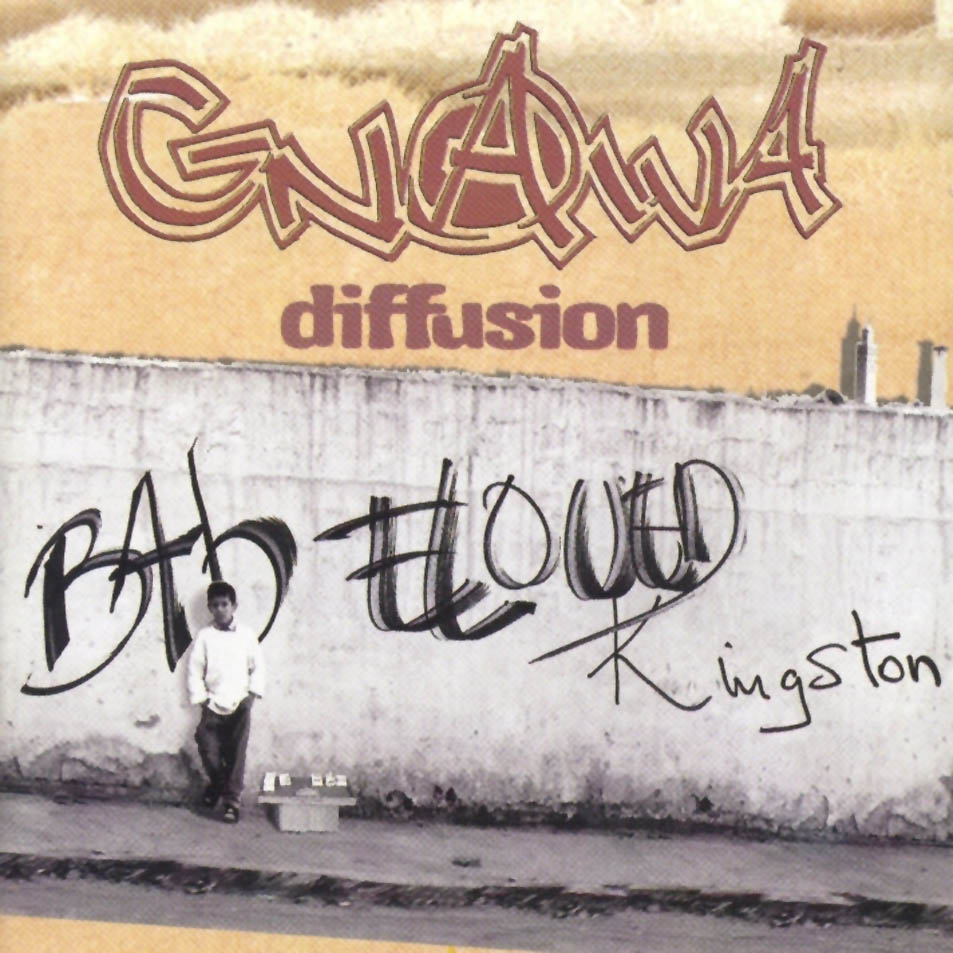Gnawa reggae is one of the exciting new styles that we're featuring on our show, "Borderless Sounds: The New North Africa." Much like raï’n’b, gnawa reggae is a hybrid genre that began among the North African communities of the French banlieues (low-income suburban neighborhoods) before ricocheting back to Algeria and Morocco. The genre melds gnawa, the mystical Sufi music brought by slaves from West Africa to the Maghreb in the 11th century (check out our Hip Deep program “Travelling Spirit Masters” for more on that history), with Jamaican roots reggae. Many of the musicians and fans of the genre find common ground between Sufism and Rastafarianism, calling themselves m’rastas (Moroccan rastas), growing their hair into dreadlocks, and incorporating patois into their vocabulary. The musical style is not uniform--certain groups lean more toward gnawa or reggae and some bounce back and forth between genres. The most explicit connection between the two genres often comes in the songs’ lyrics, linking the political ideology of Marley’s protest songs with the anti-imperialist struggle in North Africa.
The earliest and most popular gnawa reggae band is Gnawa Diffusion. The group was founded during Algeria’s “Décennie Noire” (the civil war that lasted for most of the 1990s) by Amazigh Kateb, the son of one of Algeria’s most famous playwrights and novelists, Yacine Kateb. Playing the traditional lute-like gnawa instrument called the sintir (or guembri), Kateb attacks Islamists in his lyrics, while his music melds gnawa and reggae rhythms. His 1999 album is titled Bab El Oued Kingston, connecting the Algiers neighborhood that was a center of conflict between Islamists and secularists during the Algerian civil war with the birthplace of reggae. Check out the title track below:
Darga is another group that makes an explicit musical connection between North Africa and Jamaica, along with the rest of the African continent. Their song “Qissat Ifriqya (Story of Africa)” begins, “They divided us for centuries and decreed that we were different races/They forgot that we have always lived together/Weren’t we all colonized?” And their song “Sidi Abdelkarim” pays tribute to the Riffian leader of the 1920s revolt against the French and Spanish colonizers of Morocco over a North African-tinged reggae beat.
On “Mama Africa,” Djmawi Africa bring together a pan-African ideology with a reggae-tinged Moroccan sound and a tribute to Sidi Mhammed Ben Bouziane, the 18th century Moroccan marabout (or saint), who founded the Ziania sect.
Amarg Fusion bases their sound on that of the rwayes (Amazigh (also known as Berber) troubadours from the Souss region of Morocco), mixing in a reggae rhythm with distinctive playing on the one-stringed fiddle-like instrument called the ribab.
One of the best examples of the movement comes from a group fittingly named Bob Maghrib. The band covers the classic Marley song, “So Much Trouble in the World” with instrumentation on the sintir and ghaïta (oboe), along with lyrics in both English and Tamazight (the Amazigh language).
For more on the subject of gnawa reggae, check out Rebel Music, the excellent new book by Hisham D. Aidi.








